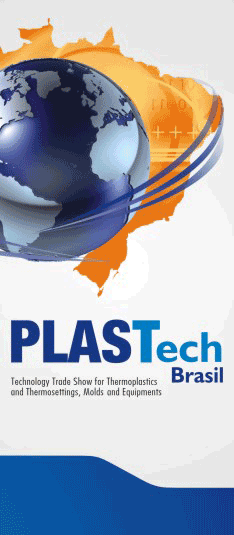
| Brazilian Plastics News |
Brazil recycles 19% of post-consumption PVC wasteSurvey shows the greatest historical level of PVC recycling since 2005 A survey ordered by Instituto do PVC shows that the recycling rate of post-consumption PVC in Brazil rose from 15.1% in 2010 to 19% in 2011, a historical record since 2005 when the survey started to be conducted. The recycled volume was 29,857 tons in 2011, compared to 25,302 recycled in the previous year, i.e., an increase by 18%. The study showed that the Brazilian industry of PVC recycling employed 1,456 people in 2011 with a turnover of approximately R$ 138 million. Its installed capacity, which was 73,282 tons in 2010, has risen 9.7%, reaching 80,931 tons. In addition to this, the last year’s idle capacity, which was 59.1%, decreased to 46.7% in 2011, showing that the sector is making progresses and has a great improvement potential. According to Miguel Bahiense, president of Instituto do PVC, further improvement of the recycling activity is closely related to the improvement of the selective collection systems of post-consumer waste. “Brazil is formed by over 5,500 cities,and only 8% have some kind of selective collection”, states Bahiense. “It is necessary to change this scenario so that the recycling industry will be able to not only develop, but also becomes a formal market”. Additionally, he says: “Instituto do PVC works towards promoting concepts of adequate use, reuse and discharge of PVC, aiming at contributing to the creation of a recycling culture in the society as a whole”. The survey shows that the ratio between discharge and recycling has been changing. In 2010, the country discharged 167K tons and recycled 15.1%. In 2011, 157K tons were discharged and 19% recycled. This means that even by decreasing the generation of post-consumer waste, the recycling rate increased, which is a very positive fact. Despite being one of the three mostly produced plastics in the world, PVC is the least present in the midst of garbage dump area. This is due to the fact that 64% of PVC products are applied in long-life products, lasting for over 15 years, such as pipes and fittings, flooring, window framing, etc. Many PVC products last for more than 50 years. Only 12% of PVC products are used in parts with a short-life cycle, i.e., from 0 to 2 years. The remaining 24% are applied in products lasting between 2 to 15 years. The recycling rate of flexible PVC rose from 18.7% in 2010 to 20.50% in 2011. The rates for rigid PVC increased from 11.4% in 2010 to to 17.40% in 2011. The recycling rate of flexible PVC is bigger because rigid PVC is mostly associated with applications in civil construction, which means a long-term life cycle. Some of the local characteristics of the PVC recycling industry have also been mapped. Out of the total amount of recycled PVC in 2011, the Center-west region, which did not show any recycling activity in 2010, recycled 4.3%. The Southeast region recycled 57.7%, followed by the Northeast with 27.6%, the South with 6.9% and the North with 3.6%. PVC´s main raw material is chlorine taken from sea salt (57%), an almost inexhaustible natural resource. The remaining 43% are taken from ethylene, an oil-derived product The survey figures:
|

